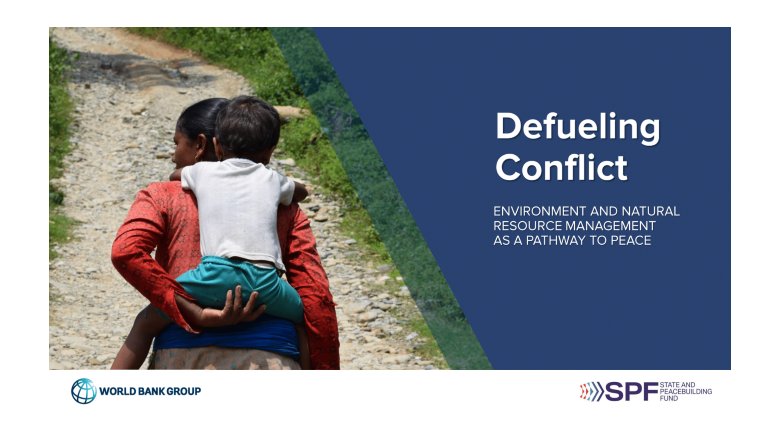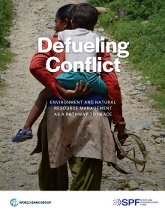BACKGROUND
Climate change, environment degradation, and conflict are strongly correlated: natural resources were a source of contention in one in four global crises and conflicts in 2014-18, and closely related to 40% of all intrastate conflicts in 1946-2006. In addition, as much as 70 percent of the most climate-vulnerable countries are also among the most fragile. Conflict-environment linkages particularly affect poor and vulnerable populations. Structural gender inequalities, discriminatory laws, and adverse gender norms put women and girls at a further disadvantage to cope with conflict and climate-related shocks, given they lack equal access to land, property, and other assets.
Understanding these linkages matter. ÄľąĎÓ°Ôş Group (WBG) Strategy for Fragility, Conflict and Violence (FCV) 2020-2025 explicitly recognizes the importance of climate change as a driver of FCV and as a threat multiplier, while emphasizing the need to address both the environmental impacts and drivers of FCV. As the Strategy implementation rolls out, it is essential to share a common understanding of these links and ensure they are reflected at the project and policy level.
The report seeks to throw some light into environment-conflict dynamics with views to help integrate them more broadly into World Bank interventions in FCS. To this end, the report offers an in-depth analysis of the interplay between environment, climate change, fragility, and gender, while taking a deep look into World Bank operations in FCS.
METHODOLOGY
To meet these objectives, the report seeks to:
- Clarify environment-conflict linkages and entry points in light of the World BankˇŻs FCV Strategy
- Serve as a general resource for World Bank teams to empower their programs in FCV
- Present a broad suite of options to improve conflict-sensitive project design and implementation.
- Influence high-level policy and programs on FCV to consider natural resources more systematically.
To this end, the report offers a compendium of concise but detailed information incorporating essential guidance, reference material, and analytical tools for a broad audience with a wide range of technical expertise. The document is suitable for World Bank project teams across different Global Practices, as well as external readers with different ranges of expertise.
Based on desk-research and consultations with WBG staff and external experts, is designed to facilitate a shared understanding of the issues and opportunities, providing in-depth explanations about how and why environment-conflict dynamics matter. The report includes an annotated questionnaire to help integrate these dimensions into their FCV interventions.

